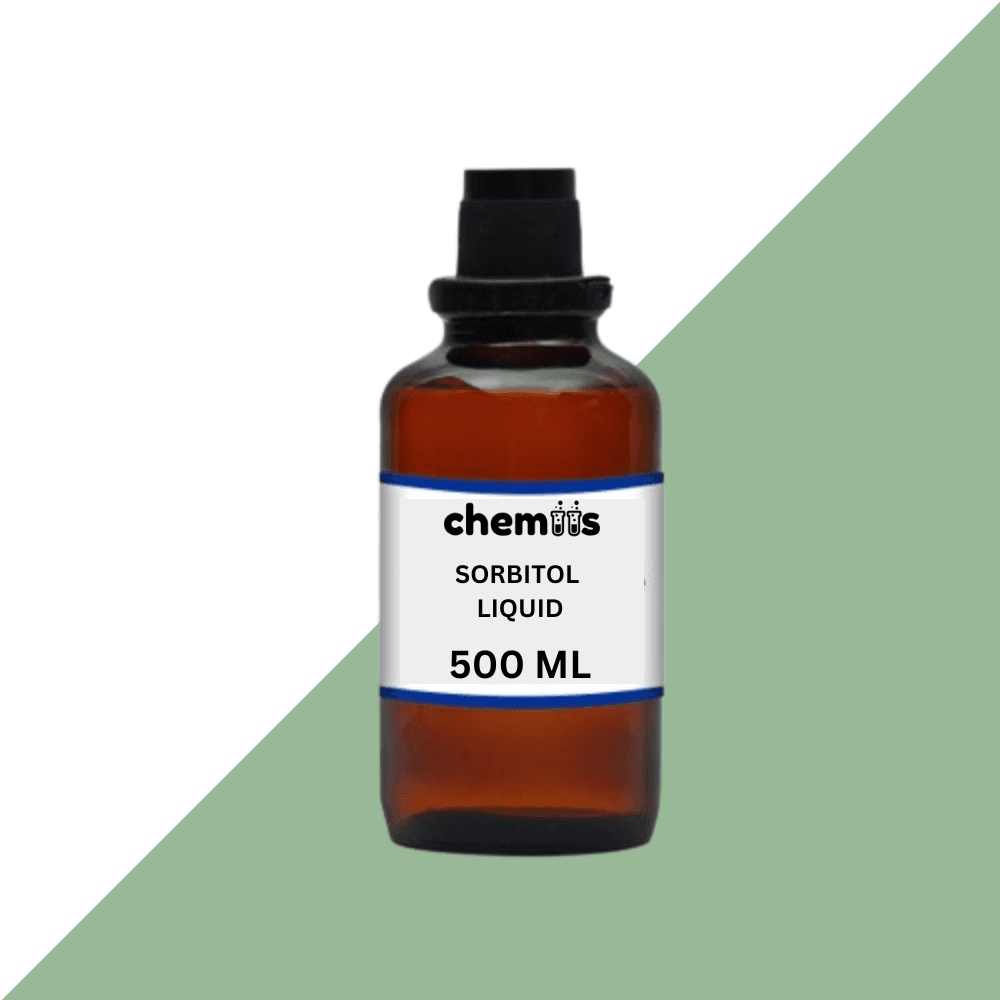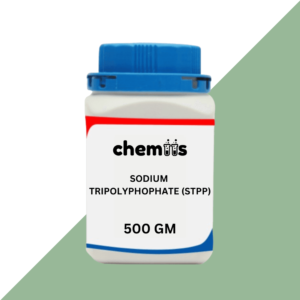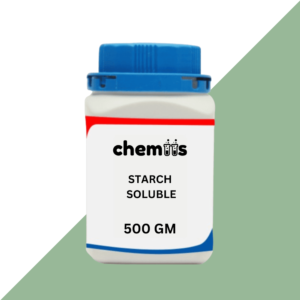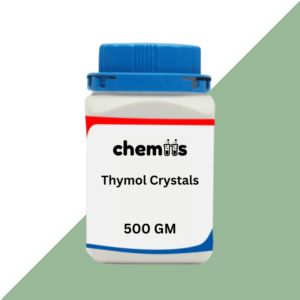Sorbitol Liquid is a clear, colorless, and viscous liquid that is primarily used as a sugar substitute, humectant, and thickener in a variety of industries. Sorbitol, chemically known as 1,2,3,4,5,6-hexanehexol, is a sugar alcohol derived from natural sources such as fruits (apples, pears, peaches) or produced synthetically from glucose. It is widely used in the food, pharmaceutical, cosmetic, and chemical industries due to its versatile properties, including its ability to retain moisture, enhance sweetness, and improve the texture of products. Sorbitol Liquid is often preferred in low-calorie, sugar-free, and diabetic-friendly formulations.
Applications:
1. Food and Beverages:
- Sugar Substitute: Sorbitol Liquid is widely used as a sugar substitute in food and beverages. It provides sweetness without the calories associated with sugar, making it an ideal ingredient for sugar-free, low-calorie, and diabetic-friendly products. It is commonly found in sugar-free gum, candies, soft drinks, and baked goods.
- Humectant: In food products, sorbitol acts as a humectant, helping retain moisture and improve texture in items such as cakes, cookies, and candies. It prevents products from drying out, ensuring they maintain their softness.
- Sweetener in Diet Foods: Sorbitol Liquid is used in a variety of diet foods and beverages to reduce calorie content while maintaining a pleasant sweetness. It is also frequently found in sugar-free or reduced-sugar jams, jellies, and preserves.
- Smoothies and Juices: As a sweetening agent, sorbitol is added to fruit juices and smoothies to enhance flavor without adding sugar.
2. Pharmaceutical and Medical Use:
- Laxative: Sorbitol is used as an osmotic laxative in oral solutions and suppositories. It helps to relieve constipation by drawing water into the bowel, softening stools, and promoting regular bowel movements.
- Formulation in Liquid Medications: It is also used as a stabilizing agent in liquid medications, ensuring the proper viscosity and texture for suspension or syrup formulations.
- Oral Care Products: Sorbitol Liquid is commonly found in toothpastes, mouthwashes, and other oral care products, where it serves as a humectant to prevent the product from drying out and to improve consistency.
- Moisturizer in Pharmaceutical Gels: Sorbitol is used in pharmaceutical gels and ointments for its moisturizing properties.
3. Cosmetics and Personal Care:
- Skin Care: Sorbitol Liquid is widely used in moisturizers, lotions, creams, and serums due to its excellent humectant properties. It draws moisture from the air into the skin, keeping it hydrated and soft.
- Hair Care: It is used in hair conditioners, shampoos, and other hair care products to prevent dryness and enhance the moisture content in hair.
- Cosmetic Formulations: Sorbitol acts as a stabilizing agent in various cosmetic formulations, including lip balms, deodorants, and soaps, where it helps improve the texture and performance of the products.
4. Industrial Uses:
- Plasticizers: Sorbitol Liquid is used in the production of plastics, especially as a plasticizer in the manufacturing of films, coatings, and polymers.
- Polymer Production: Sorbitol Liquid is used in the synthesis of polyurethanes and other polymeric materials. It helps improve the properties of the final product, such as flexibility and moisture retention.
- Anti-Freeze and De-icers: Due to its hygroscopic properties, sorbitol is sometimes included in formulations for anti-freeze and de-icing products, where it helps reduce freezing points.
5. Agricultural and Veterinary Use:
- Animal Feed: Sorbitol is used in some animal feeds as a sweetener or binder, providing both nutritional and functional benefits.
- Veterinary Medications: In veterinary formulations, sorbitol can act as a laxative and can be found in some animal medicines.
Safety Guidelines:
- Personal Protective Equipment (PPE):
- Skin Protection: Sorbitol Liquid is generally safe to handle and is not considered a skin irritant. However, prolonged or excessive contact with the liquid may cause slight irritation in some individuals. It is advisable to wear gloves when handling large quantities.
- Eye Protection: Although sorbitol is not harmful to eyes under normal use, it is still recommended to wear protective eyewear, especially in industrial settings or during manufacturing processes where splashing may occur.
- Respiratory Protection: No special respiratory protection is required during normal handling of sorbitol liquid. In confined spaces or during high-velocity spraying, respiratory protection may be necessary to prevent inhalation of vapors.
- Storage:
- Store sorbitol liquid in a cool, dry place away from heat and direct sunlight. Ensure that the container is tightly sealed to prevent moisture absorption from the air.
- Keep it away from strong acids and bases to prevent degradation of the product.
- First Aid:
- Inhalation: If inhaled in large amounts, move the individual to fresh air immediately. If symptoms persist, seek medical attention.
- Skin Contact: If sorbitol comes into contact with the skin, wash the area with water. If irritation occurs, seek medical advice.
- Eye Contact: In case of eye contact, rinse immediately with plenty of water for at least 15 minutes. If irritation persists, seek medical attention.
- Ingestion: Sorbitol is generally safe to ingest in small amounts. If a large amount is ingested, seek medical attention, especially if the person experiences symptoms like abdominal discomfort, diarrhea, or nausea.
- Disposal:
- Sorbitol Liquid is biodegradable and can generally be disposed of in accordance with local regulations. Avoid disposal into waterways or sewage systems in large quantities.
- Always check local environmental guidelines to ensure compliance with proper disposal methods.








Sneha Iyer (verified owner) –
Nicely organized website.
Meenal Shah (verified owner) –
Trustworthy platform.
Jayant Mishra (verified owner) –
Item delivered safely.
Lokesh Rathi (verified owner) –
Trustworthy platform.
Simran Gill (verified owner) –
No complaints at all.
Sahil Chhabra (verified owner) –
Fast response to queries.
Nilesh Jadhav (verified owner) –
Great for bulk purchase.
Nikhil Malhotra (verified owner) –
Well-labeled products.
Nilesh Jadhav (verified owner) –
Highly recommended.
Aarti Shukla (verified owner) –
Professional service.